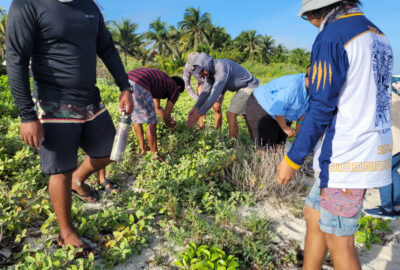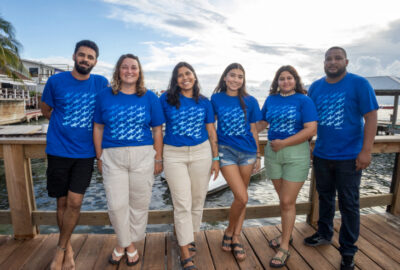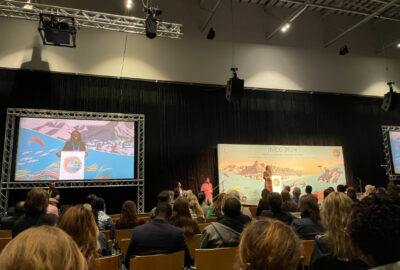Please note: We strongly recommend purchasing tickets in advance to guarantee entry, as we do sell out during school vacation week (April 19 – 27).
Takeaways from the National Marine Educators Association Conference
By New England Aquarium on Wednesday, February 19, 2025

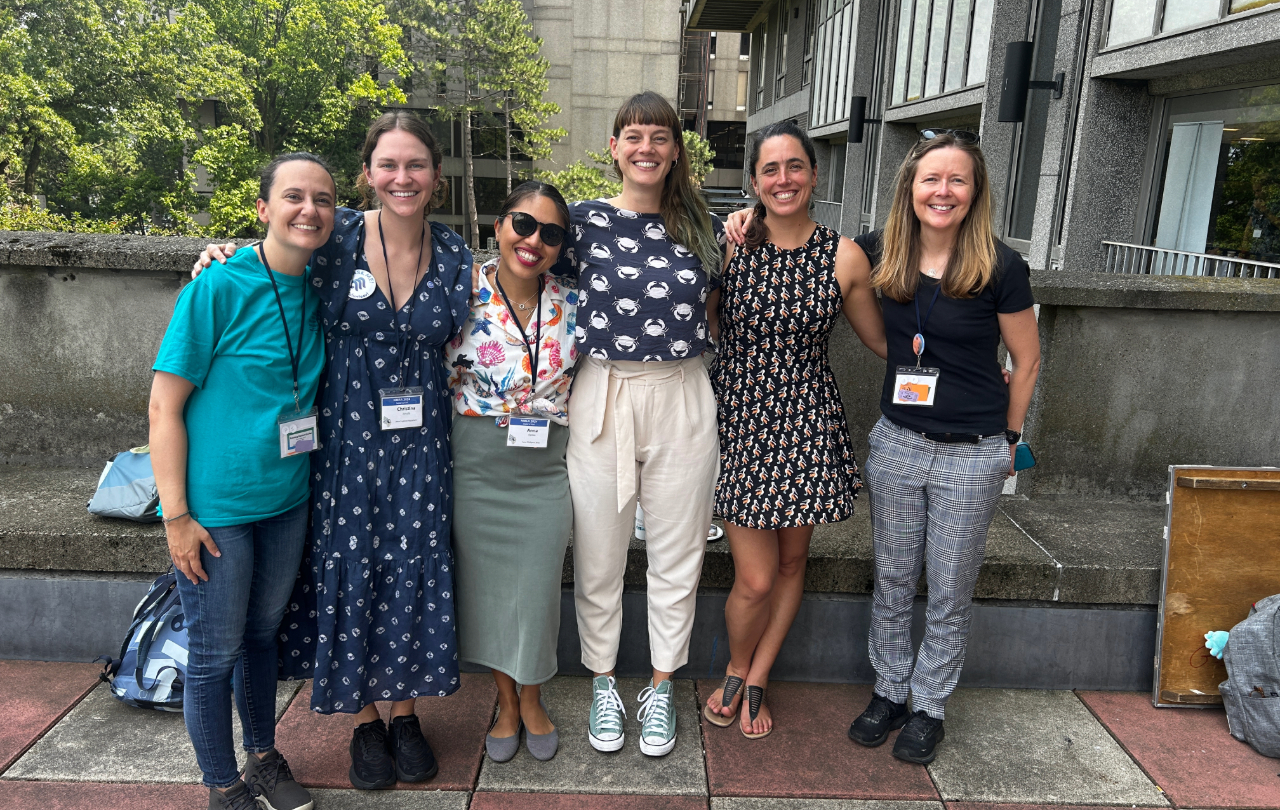
The Marine Conservation Action Fund (MCAF) was honored to help support MCAF Fellow and Save Philippine Seas Executive Director Anna Oposa’s attendance at a recent conference. Here, Anna shares what she learned and how it’s shaping her organization’s work.
In the early days of Save Philippine Seas (SPS), I wrote to the Philippines’ Department of Education (DepEd) asking “how we [could] work together to strengthen marine education nationwide.” To quote a wise philosopher named Elle Woods, then-25-year-old me thought, “What, like it’s hard?”
Spoiler alert: It was hard. It is hard.
I didn’t receive a response to that email I sent in 2013. I didn’t mind; there were other ways to strengthen marine education nationwide. SPS began developing environmental education programs for dive guides and teachers. By 2015, we embarked on what would be a seven-year leadership and environmental education program for youth called the Sea and Earth Advocates (SEA) Camp.
In 2021, SPS finally started working with DepEd on climate change education under our program, Change the Current. I understood why there needed to be a big gap between that first email and Change the Current—integrating environmental education and climate change education in the curriculum was ambitious. It required developing and testing new materials that aligned with government-mandated learning competencies, training teachers and students, and then monitoring and evaluating impact, all while navigating the COVID-19 pandemic. In 2023, we were able to do Change the Current in person and work closely with public school teachers. I was hungry for more environmental education case studies and examples of how environmental educators were mobilizing themselves in different parts of the world.
As luck would have it, one of the contacts I made at the last Marine Conservation Action Fund (MCAF) Fellows Summit told me about the National Marine Educators Association (NMEA) conference in Boston in July 2024. I asked MCAF Director Elizabeth Stephenson if the New England Aquarium was involved. She said yes and encouraged me to apply for an MCAF travel grant to attend.
Soon after, I found myself in a sea of environmental educators in Boston who shared the same eagerness and passion. I was excited not to be a speaker/organizer because I could be a full-time student! For five days, I attended sessions that covered diversity, equity, and inclusion and monitoring and evaluation. I participated in hands-on activities about climate change, marine litter, and sharks. I also met environmental educators who were also community mobilizers and campaigners.
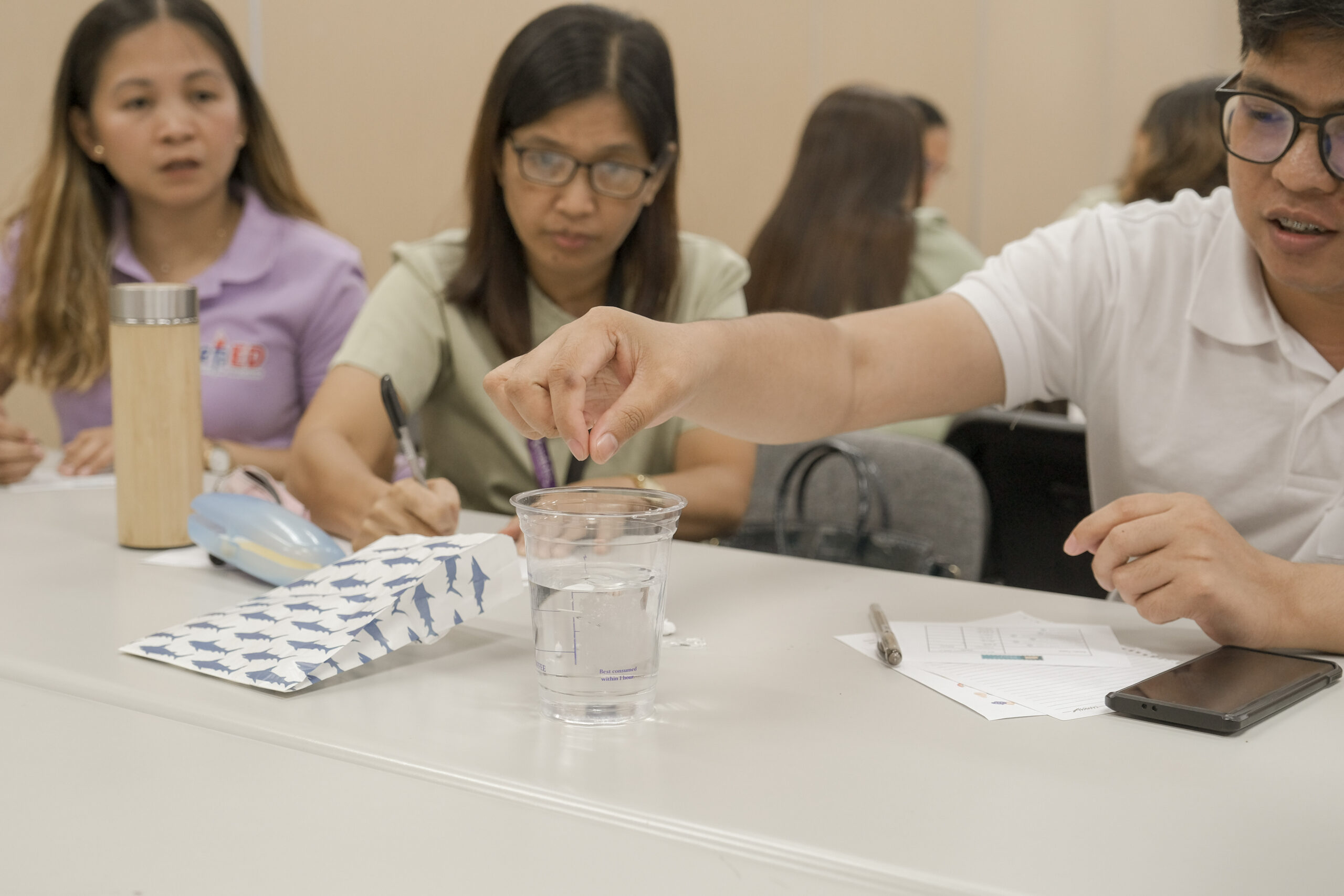
Every day, I would message my teammates back home about ideas for new programs and tweaks we could do to our existing ones. I had a list of learning resources and email addresses to follow up with. A few days after I arrived in the Philippines, I joined an experience design workshop, a perfect complement to the NMEA conference.
Within weeks, we started rolling out lessons I picked up from the NMEA conference. We gave some of our activities and decks under our Marine Litter Learning Kit a refresh and found new materials to add. We created a new waste management workshop that adapted some activities from the marine litter sessions. Attending the shark education session rekindled my love for teaching about sharks, which I stopped doing since I focused more on policies. In December, our team piloted a new shark conservation education program targeting community leaders. Monitoring and evaluation activities are ongoing, but we’ve seen promising outcomes, like participants starting their own campaigns and dive instructors teaching students to appreciate sharks.

This year, SPS is focusing on scaling environmental education. The (sea)stars aligned: On the last day of the NMEA conference, I was informed that the Embassy of France to the Philippines and Micronesia would be awarding us a grant for a new youth environmental education program we’re calling Gen SEA. We secured another grant to work on climate governance with students and DepEd from UNICEF. Spending time with the heads of RELATO (Red de Educación Latinoamericana para el Océano) was the push I needed to work on an environmental educators’ network in the Philippines, which will take shape later this year. We also have plans to develop an ocean-climate environmental education program as one of the action points I listed after the conference.
A Filipino thought leader once said, “Huwag tanungin kung mahirap, tanungin kung mahalaga” (“Don’t ask if it’s hard, ask if it’s important”–sorry, Elle Woods). Sharing space with environmental educators at the NMEA conference was affirming that environmental education is a “must-have,” not just a “nice-to-have.” Promoting the kind of environmental education that cultivates care for the environment, inspires love for country, and changes behavior is hard and important–and seeing its outcomes is worth it.

